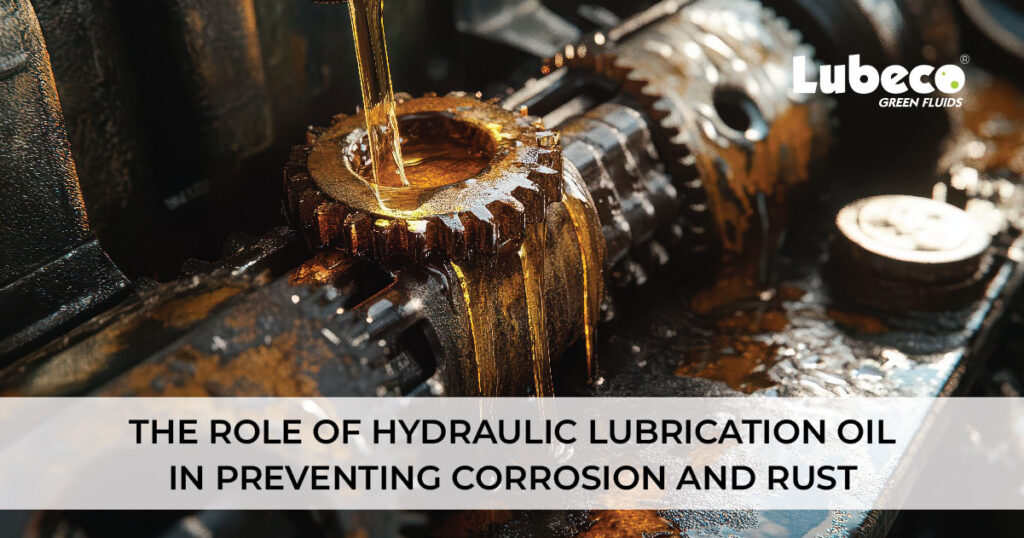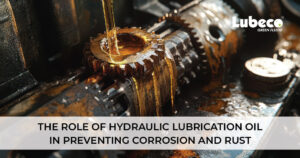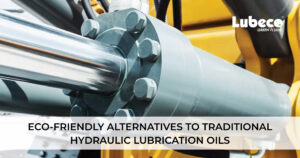Hydraulic systems are the backbone of many industrial and mechanical operations, powering everything from heavy machinery to aerospace equipment.
These systems rely on the seamless movement of components, which is facilitated by hydraulic lubrication oil.
However, beyond its primary function of reducing friction and wear, hydraulic lubrication oil plays a critical role in preventing corrosion and rust.
In this comprehensive blog, we’ll explore how hydraulic lubrication oil safeguards your equipment, the science behind its anti-corrosion properties, and best practices for maintaining your hydraulic systems.
Understanding Corrosion and Rust in Hydraulic Systems
Before diving into the role of hydraulic lubrication oil, it’s essential to understand what corrosion and rust are and why they are detrimental to hydraulic systems.
What is Corrosion?
Corrosion is the gradual degradation of metals due to chemical or electrochemical reactions with their environment. In hydraulic systems, this often occurs when metal components are exposed to moisture, oxygen, or contaminants.
What is Rust?
Rust is a specific type of corrosion that affects iron and its alloys, such as steel. It occurs when iron reacts with oxygen and water, forming iron oxide. Rust weakens metal structures, leading to equipment failure and costly repairs.
Why is Corrosion a Problem in Hydraulic Systems?
Hydraulic systems are often exposed to harsh environments, including high temperatures, moisture, and contaminants. Corrosion and rust can:
- Damage critical components like pumps, valves, and cylinders.
- Reduce system efficiency by increasing friction and wear.
- Lead to leaks and contamination of hydraulic fluid.
- Cause unplanned downtime and expensive repairs.
How Hydraulic Lubrication Oil Prevents Corrosion and Rust
Hydraulic lubrication oil is more than just a lubricant; it acts as a protective barrier for metal surfaces. Here’s how it works to prevent corrosion and rust:
1. Forms a Protective Film
Hydraulic lubrication oil creates a thin, protective film on metal surfaces. This film acts as a barrier, preventing direct contact between metal components and corrosive elements like moisture and oxygen. By isolating the metal from its environment, the oil significantly reduces the risk of corrosion.
2. Neutralizes Acids
Over time, hydraulic oil can become contaminated with water and other impurities, leading to the formation of acids. These acids can accelerate corrosion. High-quality hydraulic oils contain additives that neutralize these acids, maintaining the oil’s pH balance and protecting metal surfaces.
3. Contains Anti-Corrosion Additives
Modern hydraulic oils are formulated with specialized anti-corrosion additives. These additives adhere to metal surfaces, providing an additional layer of protection. Common additives include:
- Rust inhibitors: These chemicals form a protective layer on metal surfaces, preventing rust formation.
- Anti-wear agents: These reduce friction and wear, minimizing the exposure of fresh metal surfaces to corrosive elements.
- Detergents and dispersants: These help keep the system clean by preventing the buildup of sludge and contaminants that can contribute to corrosion.
4. Repels Water
Water is one of the primary causes of rust and corrosion in hydraulic systems. Hydraulic lubrication oil is designed to repel water, either by separating it from the oil or by emulsifying it in a way that minimizes its contact with metal surfaces.
5. Maintains System Cleanliness
Contaminants like dirt, dust, and metal particles can accelerate corrosion by creating abrasive surfaces that wear down protective coatings. Hydraulic oil helps flush out these contaminants, keeping the system clean and reducing the risk of corrosion.
Choosing the Right Hydraulic Lubrication Oil for Corrosion Prevention
Not all hydraulic oils are created equal. To maximize corrosion protection, it’s crucial to select the right oil for your system. Here are some factors to consider:
1. Viscosity
The viscosity of the oil should match the operating conditions of your hydraulic system. Too thin, and it won’t provide adequate protection; too thick, and it may not flow properly, leading to increased friction and wear.
2. Additive Package
Look for oils with robust anti-corrosion additives, such as rust inhibitors and anti-wear agents. These additives enhance the oil’s ability to protect metal surfaces.
3. Base Oil Quality
High-quality base oils provide better lubrication and corrosion protection. Synthetic oils, for example, offer superior performance in extreme temperatures and harsh environments.
4. Compatibility
Ensure the oil is compatible with the materials used in your hydraulic system, including seals, hoses, and metal components. Incompatible oils can cause swelling, cracking, or other damage that may lead to corrosion.
5. Industry Standards
Choose oils that meet industry standards, such as ISO, DIN, or OEM specifications. These standards ensure the oil has been tested for performance and corrosion protection.
Best Practices for Maintaining Hydraulic Systems
While hydraulic lubrication oil plays a vital role in preventing corrosion, proper maintenance is equally important. Here are some best practices to keep your hydraulic system in top condition:
1. Regular Oil Analysis
Conduct regular oil analysis to monitor the condition of your hydraulic oil. This helps detect contaminants, water ingress, and acid formation early, allowing you to take corrective action before corrosion occurs.
2. Control Moisture Levels
Moisture is a leading cause of rust and corrosion. Use desiccant breathers, moisture-absorbing filters, and regular oil changes to keep moisture levels in check.
3. Keep the System Clean
Prevent contaminants from entering the system by using high-quality filters and seals. Regularly clean reservoirs, hoses, and other components to remove dirt and debris.
4. Monitor Operating Temperatures
High temperatures can accelerate oil degradation and corrosion. Ensure your system operates within the recommended temperature range and use cooling systems if necessary.
5. Schedule Routine Inspections
Regularly inspect your hydraulic system for signs of corrosion, leaks, or wear. Address any issues promptly to prevent further damage.
6. Use Proper Storage Practices
Store hydraulic oil in a clean, dry environment to prevent contamination. Use sealed containers and avoid exposing the oil to extreme temperatures.
The Economic Impact of Corrosion Prevention
Preventing corrosion and rust in hydraulic systems isn’t just about maintaining equipment; it’s also about saving money. Corrosion-related failures can lead to:
- Costly repairs and replacements.
- Unplanned downtime and lost productivity.
- Increased energy consumption due to reduced system efficiency.
- Higher maintenance costs.
By investing in high-quality hydraulic lubrication oil and following best practices, you can extend the lifespan of your equipment, reduce maintenance costs, and improve overall operational efficiency.
Let’s Sum It Up
Hydraulic lubrication oil is a critical component in the fight against corrosion and rust. By forming a protective barrier, neutralizing acids, and repelling water, it safeguards your hydraulic system from the damaging effects of corrosion.
Choosing the right oil, combined with proper maintenance practices, can significantly enhance the performance and longevity of your equipment.
In an industry where downtime and repairs can be costly, taking proactive steps to prevent corrosion is a smart investment.
Whether you’re operating heavy machinery, manufacturing equipment, or aerospace systems, understanding the role of hydraulic lubrication oil in corrosion prevention is key to ensuring smooth, efficient, and reliable operations.
By prioritizing corrosion prevention, you’re not just protecting your equipment—you’re safeguarding your bottom line.
So, the next time you evaluate your hydraulic system, remember: the right lubrication oil is your first line of defense against corrosion and rust.
FAQ’s
1. Can I use any hydraulic oil to prevent corrosion?
Not all hydraulic oils offer the same level of corrosion protection. Look for oils with anti-corrosion additives and ensure they meet industry standards.
2. How often should I change my hydraulic oil to prevent corrosion?
The frequency of oil changes depends on operating conditions, but regular oil analysis can help determine the optimal change interval.
3. What are the signs of corrosion in a hydraulic system?
Common signs include rust on metal surfaces, reduced system performance, leaks, and unusual noises during operation.
4. Can synthetic hydraulic oils prevent corrosion better than mineral oils?
Synthetic oils generally offer better performance in extreme conditions and provide enhanced corrosion protection compared to mineral oils.
5. How does water cause corrosion in hydraulic systems?
Water reacts with metal surfaces to form rust and can also lead to the formation of acids that accelerate corrosion.










